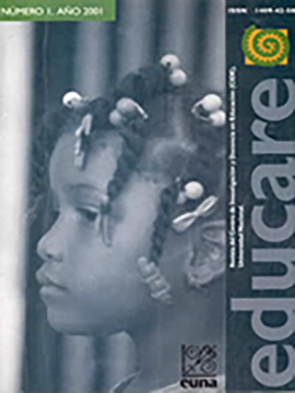Gobernar es educar
DOI:
https://doi.org/10.15359/ree.2001-1.2Abstract
Education plays a critical role in the reduction of the most prominent enemy of peace, democracy, and human development: poverty. It is the catalyst of the constructive participation in the social and political processes of those groups traditionally silenced and excluded from development.
Education is particularly important in a global society. It is a fundamental factor to understand the pluralism of the nations and their cultural diversity. It contributes to the national and regional integration. Education, viewed as everyone's responsibility, should not only be aimed at instructing and training individuals for the labor market, but also at educating them in a series of principles and values. In so doing, educating by the example should play a major role.
The author concludes stressing the importance that participation in politics becomes a pedagogical practice. Politicians should become educators capable of generating knowledge for themselves and the people they represent. They should model with their example the principles the preach. To do politics and govern is to educate.
References
Arias Sánchez, O. (s.f.). Gobernar es educar. Informe Final sobre Desarrollo Humano, PNUD, Comisión de Alto nivel del proyecto RLA/96/001. PNUD.
Published
How to Cite
Issue
Section
License
1. In case the submitted paper is accepted for publication, the author(s) FREELY, COSTLESS, EXCLUSIVELY AND FOR AN INDEFINITE TERM transfer copyrights and patrimonial rights to Universidad Nacional (UNA, Costa Rica). For more details check the Originality Statement and Copyright Transfer Agreement
2. REUTILIZATION RIGHTS: UNA authorizes authors to use, for any purpose (among them selfarchiving or autoarchiving) and to publish in the Internet in any electronic site, the paper´'s final version, both approved and published (post print), as long as it is done with a non commercial purpose, does not generate derivates without previous consentment and recognizes both publisher's name and authorship.
3. The submission and possible publication of the paper in the Educare Electronic Journal is ruled by the Journal’s editorial policies, the institutional rules of Universidad Nacional and the laws of the Republic of Costa Rica. Additionally, any possible difference of opinion or future dispute shall be settled in accordance with the mechanisms of Alternative Dispute Resolution and the Costa Rican Jurisdiction.
4. In all cases, it is understood that the opinions issued are those of the authors and do not necessarily reflect the position and opinion of Educare, CIDE or Universidad Nacional, Costa Rica. It is also understood that, in the exercise of academic freedom, the authors have carried out a rogorous scientific-academic process of research, reflection and argumentation thar lays within the thematic scope of interest of the Journal.
5. The papers published by Educare Electronic Journal use a Creative Commons License:















 The articles published by Educare Electronic Journal can be shared with a Creative Commons License:
The articles published by Educare Electronic Journal can be shared with a Creative Commons License: 



